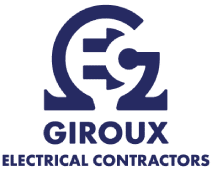Buying your first home can be one of the most exciting events of your life and also one of the most terrifying. With new home ownership comes many new responsibilities. One of the most important but often overlooked is the electrical system that powers your home. From the lighting to the heating, appliances, and entertainment, electricity plays a key role in everyday comfort. However, if not properly understood and maintained, it can lead to potential risks that can be serious and life-threatening. From overloaded circuits, faulty wiring, or something as simple as improperly grounded outlets, electrical hazards are among the most common causes of home accidents and fires.
If you have recently purchased your first home, it is critical to familiarize yourself with your electrical system. This will not only ensure it remains safe but also keep your home fully operational. In this article, we will walk you through important safety tips and practical suggestions to help you understand, maintain, and troubleshoot your home’s electrical system. Being knowledgeable and prepared will help you to enjoy a safer, more comfortable living space.
Understanding Your Home’s Electrical System
Electricity enters your home through an electrical meter and is then directed to the main service panel, often referred to as the breaker box. From there, the electricity is then distributed through a series of circuits, each circuit protected by a circuit breaker. The circuit breaker then directs the power to outlets, light fixtures, and appliances. The electrical current flows through wiring within your home’s walls, powering devices and returning through the ground wire to complete the circuit. This continuous flow allows electricity to safely power everything in the home (if working properly).
The key components of your home’s electrical system are the service panel (breaker box), circuit breakers, outlets, and wiring.
Practical Tips for the New Homeowner
1. Familiarize yourself with the electrical panel (breaker box). In the event of an electrical emergency, it will be important to shut your home’s power off using the breaker box. Understanding each breaker, its purpose, and how to reset it when it trips is important to properly manage the electrical load.
2. Count your outlets in the home. Knowing how many outlets are available will help to manage the electrical load and avoid overloading circuits, which can lead to potential hazards like electrical fires or tripped breakers. Knowing how many outlets you have will also aid in planning for future electrical needs or electrical upgrades.
3. Invest in a surge protector to protect your electronic devices from power surges or voltage spikes. By redirecting excess voltage away from these devices, a surge protector will help prevent damage.
4. Have a residential electrician in Southborough perform a home check-up and inspection every 3-5 years or so. This can help identify any potential safety hazards, outdated wiring, code violations, and areas of the electrical system that may need maintenance or upgrades to ensure safe and efficient operation.
8 Safety Tips for the New Homeowner
1. Any wires that show signs of damage, such as splits, cracks, and frays, should be replaced immediately by a professional. Doing so prevents electrical shocks, fires, or short circuits, which all increase the risk of severe injury or damage to your home.
2. Avoid overloading your outlets. Plugging too many devices in or using power strips is one of the most commonly overlooked dangers for homeowners that can cause overheating and potential fires.
3. Having ground fault circuit interrupters (GFCIs) installed in areas prone to moisture, like kitchens, bathrooms, and laundry rooms, reduces the risk of shock and fires by automatically shutting off the electrical flow when a ground fault is detected.
4. Use extreme caution when using space heaters and high-voltage appliances due to the increased risk of electrical fires, overloaded circuits, and electrical shock. This is especially important if the wiring and outlets of your home are outdated.
5. Avoid blocking the electrical panel so that you may access it quickly in the event of an emergency.
6. Install smoke alarms and carbon monoxide detectors in your home if not already present. If they are present, check the batteries routinely and replace them when needed to ensure they function properly when needed.
7. Create an emergency plan for you and everyone in the home in case of an emergency. Having this plan in place ensures that everyone in the household knows how to quickly and safely shut off the power, evacuate if needed, and call for electrical emergency services, reducing the risk of injury or further damage.
8. When it’s time to upgrade your electrical system, do not procrastinate on this project and get it completed as soon as possible. There are a ton of problems and hazards that can arise from an outdated electrical system.
When to Call a Professional
There are many signs that your home may need some professional help. Experiencing frequent tripped breakers, sparking outlets, or burning smells are all indicators of the need for professional intervention.
DIY fixes are dangerous when it comes to electrical issues and should not be attempted. Anything to do with electrical work is best left to the professionals. Finding a reputable residential electrician for inspections, repairs, and upgrades ensures that your electrical system operates smoothly, safely, and meets the electrical code 100% of the time.
As you can see, understanding and maintaining your home’s electrical system is an important responsibility for every homeowner. By familiarizing yourself with your breaker box, practicing basic electrical safety, and keeping up with regular inspections, you can ensure that your home remains both safe and functional for years to come. Remember, electricity is an essential part of modern living, and with proper care and awareness, you can minimize risks and avoid costly or dangerous accidents. If you encounter any electrical issues or need advice, don’t hesitate to contact a professional. With the right knowledge and precautions in place, you can confidently power up your home with safety and peace of mind.

